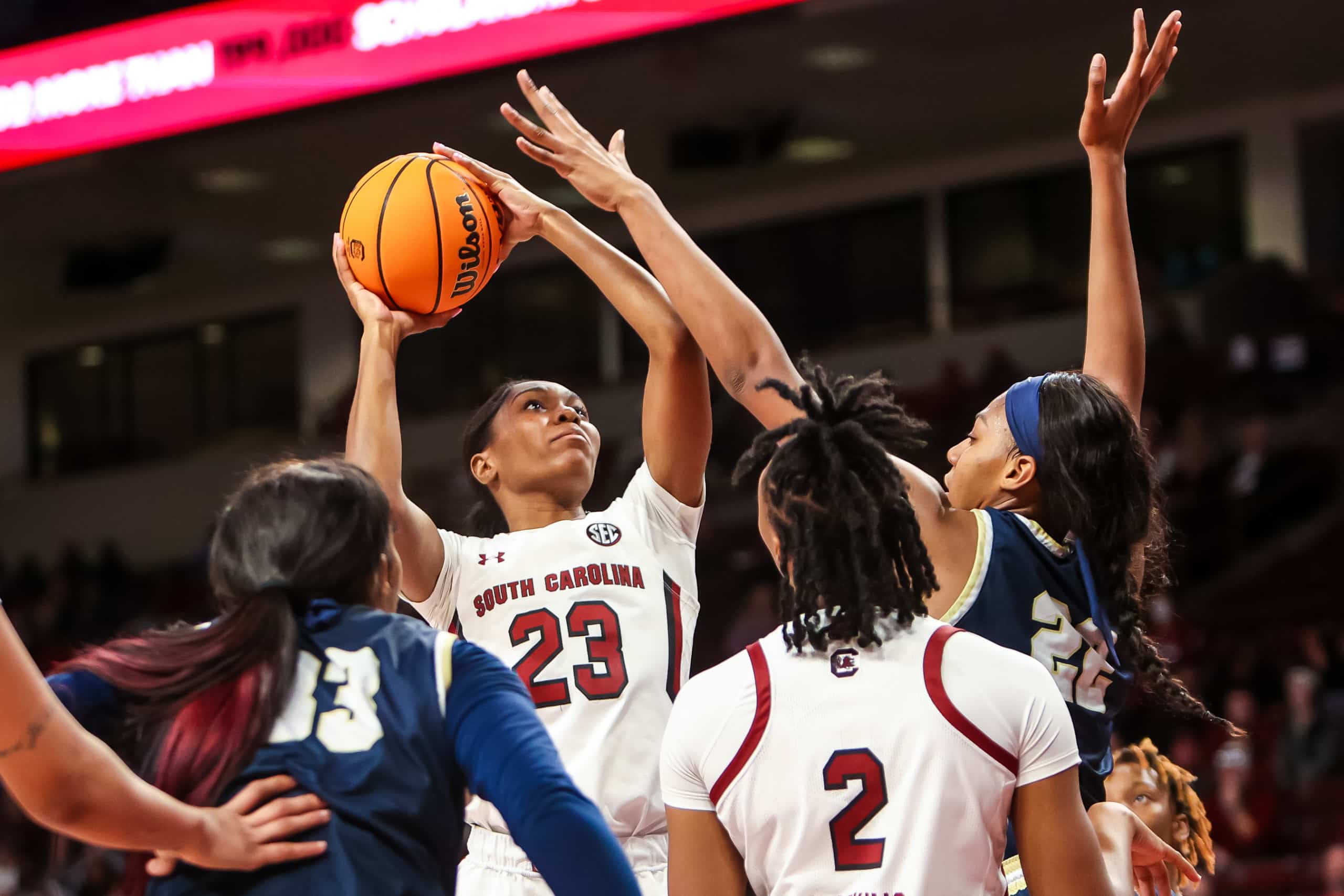On Tuesday, Sen. Chris Murphy (D-Conn.) and Rep. Alma Adams (D-N.C.) introduced a bill called “The Fair Play for Women Act” that would, in effect, make the NCAA subject to Title IX for the first time.
Title IX, which turned 50 in June, requires that any institution of higher education that receives federal funding cannot discriminate on the basis of sex — and as a result, paved the way for a robust women’s sports landscape nationwide. But a previous court case called NCAA v. Smith denied that Title IX applied directly to the NCAA itself.
Co-sponsored by Reps. Lori Trahan (D-Mass.) and Suzanne Bonamici (D-Ore.), the bill includes several other provisions aiming to improve gender equity.
- The bill would require that colleges provide more data and rectify reporting loopholes.
- Elementary, middle, and high schools would also be required to provide data for the first time.
- It strengthens enforcement by encouraging the Secretary of Education to sanction schools that don’t demonstrate compliance and allowing students to bring lawsuits.
- The bill would also formalize Title IX training modules on campuses and keep a more succinct record of Title IX compliance offers.
“Glaring loopholes in Title IX have been hurting women athletes for decades,” Trahan said in a statement. “I wish women athletes had protections like those in the Fair Play for Women Act when I was playing volleyball [at Georgetown], and it’s on all of us to make sure future generations never go without them again.”
In the news release, representatives from two advocacy groups — Voice In Sport and the Drake Group — voiced their support of the bill.
Two years ago, the NCAA faced heavy criticism for a gender equity fiasco at the Division I NCAA basketball tournaments.
In fact, gender equity issues at March Madness inspired another bill in March — though the language of that bill wasn’t as strong.
The “The Gender Equity in College Sports Commission Act,” sponsored by several House Democrats, would have created a bipartisan commission of lawmakers to investigate equity in college sports and offer recommendations for preventing future discrimination.








![[Subscription Customers Only] Jun 15, 2025; Seattle, Washington, USA; Botafogo owner John Textor inside the stadium before the match during a group stage match of the 2025 FIFA Club World Cup at Lumen Field.](https://frontofficesports.com/wp-content/uploads/2026/02/USATSI_26465842_168416386_lowres-scaled.jpg?quality=100&w=1024)
![[Subscription Customers Only] Jul 13, 2025; East Rutherford, New Jersey, USA; Chelsea FC midfielder Cole Palmer (10) celebrates winning the final of the 2025 FIFA Club World Cup at MetLife Stadium](https://frontofficesports.com/wp-content/uploads/2026/02/USATSI_26636703-scaled-e1770932227605.jpg?quality=100&w=1024)








